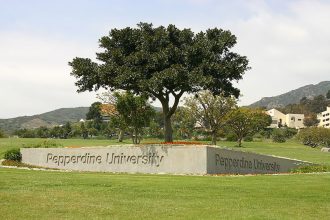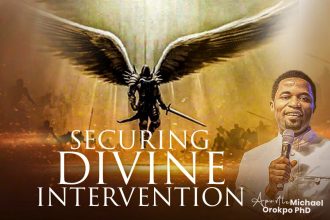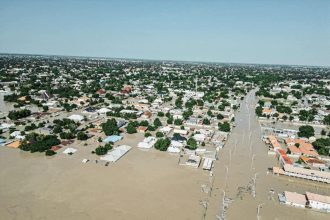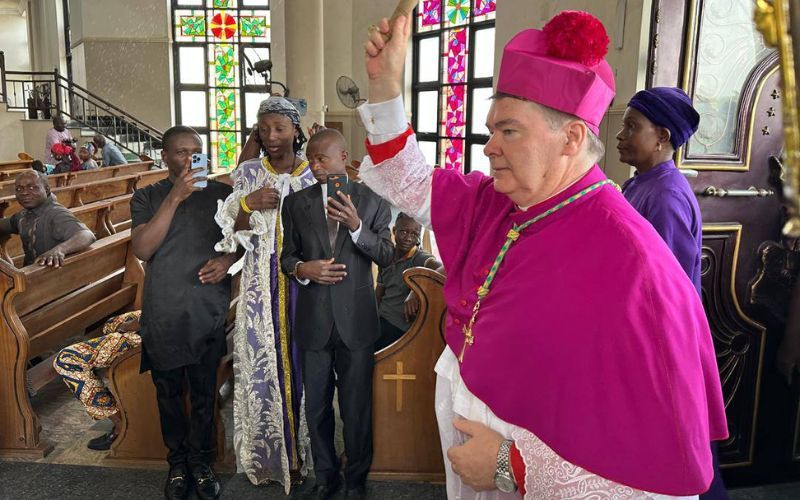Archbishop Crotty also reflected on the role of the Church in Nigeria and its contributions to the Universal Church. He acknowledged the abundance of vocations to the priesthood and Religious Life in the West African nation.
“There is a huge number of Priests and Sisters working in many different parts of the world. It is a wonderful thing that Nigeria is making its contribution to the Universal Church,” he said and emphasized the need to build on this foundation to further strengthen the Church’s presence globally.
The Irish-born diplomat described the evangelization of Nigeria as a remarkable achievement, given the relatively short time of about 150 years since the Church was established in the country.
The Nuncio further urged Nigerian Catholics to combine prayer with active participation in society to address the country’s pressing challenges, including insecurity, corruption, and economic hardship.
“The very first thing we need to do as Christians, as Catholics, is certainly to pray,” said Archbishop Crotty, adding, “We need to pray for God’s intervention concerning all the ills in society.”
He highlighted the urgent need to pray for the conversion of individuals involved in kidnappings and killings in the country, stressing that even one such incident is unacceptable.
Archbishop Crotty called for prayers for political leaders in Nigeria, stating, “We need to pray for our political leaders, that they may always be guided with wisdom and work always for the benefit and good of society and the safety and protection of the people.”
He underlined the importance of the Church’s social teaching in guiding Catholics to actively engage in society.
“As Catholics, we have our social teaching of the Church which calls us to be involved and committed to being good citizens and to play our role in society,” he said and urged Catholics to integrate their faith into action by utilizing existing societal structures to promote the common good.
Reflecting on the broader context of governance, Archbishop Crotty acknowledged the imperfections of democracy worldwide, describing it as “a work in progress.”







